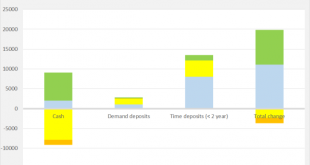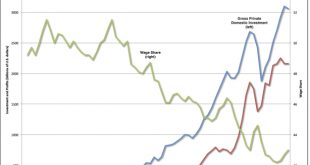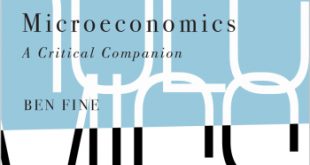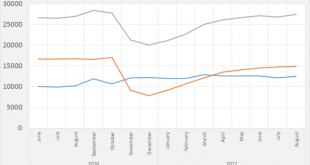from Asad Zaman Building on the analysis of Supply and Demand in Chapter 3 of Hill and Myatt’s Anti-Textbook, this lecture constructs a very simple model of monopoly and duopoly, to show that policy implications in these cases differ dramatically from what conventional textbooks teach. The higher level goal is to teach students Meta-Theoretical thinking. This goes beyond the binary logic which lies behind conventional textbooks, which teach student to think in terms of whether theories...
Read More »Laughter is the best medicine
from David Ruccio Sometimes we just have to sit back and laugh. Or, we would, if the consequences were not so serious. I’ve been reading and watching the presentations (and ensuing discussions) at the Rethinking Macroeconomic Policy conference recently organized by the Peterson Institute for International Economics. Quite a spectacle it appears to have been, with an opening paper by famous mainstream macroeconomists Olivier Blanchard and Larry Summers and a closing session—a “fireside...
Read More »Joan Robinson and the inadequacies of revealed preference theory
from Lars Syll We are told nowadays that since utility cannot be measured it is not an operational concept, and that ‘revealed preference’ should be put in its place. Observable market behaviour will show what an individual chooses … It is just not true that market behaviour can reveal preferences. It is not only that the experiment of offering an individual alternative bundles of goods, or changing his income just to see what he will buy, could never be carried out in practice. The...
Read More »Whatever happened to ₹-money (and credit) in India?
Aside: I didn’t know, but the ₹-sign is the official sign for the rupee Why did the Indian economy not succumb under the weight of the sudden demonetization of 8 November 2016? The answer: to an extent because the government and the commercial sector kept borrowing from banks and spent this money. There is overwhelming evidence that at the grassroots level the dearth of cash caused by the financial folly disproportionately hurt the poor and unbanked as rebuilding took time and converting...
Read More »Pie in the sky
from David Ruccio Kevin Hassett and the other members of the president’s Council of Economic Advisers are just like the long-haired preachers Joe Hill sang about more than a century ago. They come out every night to tell us what’s wrong and what’s right. But when asked about something to eat, they answer in voices so sweet: You will eat, bye and bye In that glorious land above the sky Work and pray, live on hay You’ll get pie in the sky when you die. That’s a lie With one notable...
Read More »Microeconomic aggregation problems
from Lars Syll If a demand function for the economy as a whole is to be estimated, just drawing upon the economy’s overall income and the price system, is it legitimate to use the demand system derived for an individual? In other words, can we estimate demand functions independently of the distribution of income and preferences across consumers? Not surprisingly, the answer is no in general, and the conditions for it to be yes are extremely stringent, indeed unrealistically so....
Read More »More about the de-digitisation of money in India
On this blog Jayati Gosh published an excellent post about the monetary folly in India where without any notice overnight large denominations of cash were abolished to force people to use digital bank money. I totally agree with this analysis but I am able to add a little. The author takes cash withdrawals from ATM machines as an indicator of the re-monetization of the economy. The Bank of India however publishes data on the composition of the stock of money in India. See also here. This...
Read More »The de-digitisation of India
from Jayati Ghosh So it’s official: cash use is back in almost full force in the Indian economy. Cash withdrawals from ATM machines – a reasonable if incomplete proxy for the use of cash in the economy – are nearly back to the level of just before the demonetisation shock of 8 November 2016. RBI data on use of debit and credit cards to withdraw money from ATMs show that such withdrawals, which had collapsed to only Rs 850 billion in December 2016 largely because of the sheer...
Read More »Intellectual property for the twenty-first-century economy
from Joseph E. Stiglitz, Dean Baker and Arjun Jayadev When the South African government attempted to amend its laws in 1997 to avail itself of affordable generic medicines for the treatment of HIV/AIDS, the full legal might of the global pharmaceutical industry bore down on the country, delaying implementation and extracting a high human cost. South Africa eventually won its case, but the government learned its lesson: it did not try again to put its citizens’ health and wellbeing into...
Read More »Putting theories to the test
from Lars Syll Mainstream neoclassical economists often maintain — usually referring to the methodological individualism of Milton Friedman — that it doesn’t matter if the assumptions of the theories and models they use are realistic or not. What matters is if the predictions are right or not. But, if so, then the only conclusion we can make is — throw away the garbage! Because, oh dear, oh dear, how wrong they have been! The empirical and theoretical evidence is clear. Predictions and...
Read More » Real-World Economics Review
Real-World Economics Review






